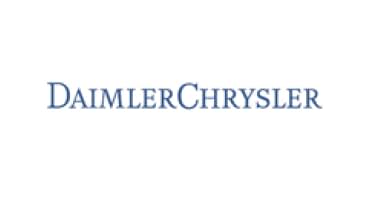Chrysler
Chrysler made asbestos-containing brakes and clutches that it used and sold to other automotive companies. The company was forced into bankruptcy in 2009 and was required to establish a trust fund for former employees.

Chrysler’s Connection to Asbestos
Chrysler made asbestos brake and clutch linings used on its cars and also sold them to other automotive companies. Asbestos fibers were used to help make these friction products resist heat, but this mineral causes serious health issues, including mesothelioma and lung cancer.
Chrysler’s Asbestos Products
- Mopar brake linings
- Mopar clutch facings
Workers who installed and repaired these parts were exposed to asbestos. Some of them went on to file lawsuits against Chrysler. The suits allege they became ill from exposure to Chrysler’s asbestos products. The company went bankrupt in 2009, which is when it then set up a trust fund for its former employees. People who were injured or developed mesothelioma as a result of its products, but who didn’t work for Chrysler, may be eligible to file an asbestos claim.
Who Was at Risk of Asbestos Exposure from Chrysler?
Workers who made Chrysler’s asbestos brake and clutch linings faced heavy exposure and a higher risk of mesothelioma. Auto assembly line workers who installed them also were at a greater risk. Chrysler made asbestos auto parts from 1925 through the 1970s.
Brake and clutch mechanics also inhaled asbestos dust from Chrysler parts. These occupations faced asbestos exposure in car repair shops.
Workers at Risk
- Auto assembly line workers
- Auto body shop workers
- Auto mechanics
- Auto supply shop workers
- Chrysler manufacturing plant workers
Do-it-yourself home mechanics got exposed as well. Peritoneal mesothelioma survivor Epifanio Figueroa tells us, “My father sold used auto parts. Then I became a mechanic in our household, disassembling cars. I was in contact with asbestos in the clutches and brakes.”
Anyone who made, installed or repaired these products could also accidentally expose their family. Secondary asbestos exposure can also lead to mesothelioma and lung cancer.

Gain access to trust funds, grants and other forms of compensation for you or your loved ones.
Get Help NowMesothelioma Lawsuits Involving Chrysler
Former Chrysler employees have filed mesothelioma lawsuits against the company. So have automotive workers who use their products and family members who experienced secondary asbestos exposure.
Notable Chrysler Settlements and Verdicts
- $40.6 million: A Delaware jury ordered Chrysler to pay 20% of the damages awarded to Larry Knecht in 2018. Knecht developed mesothelioma after working with asbestos brakes for 30 years.
- $25 million: A New York jury awarded damages to Alfred D’Ulisse in 2007. He claimed he got mesothelioma from exposure to Chrysler’s asbestos brakes.
- $18 million: In 2025, a Florida jury awarded damages to Denise Cook. She said she got mesothelioma from secondary asbestos exposure. Her dad and brother worked with Chrysler asbestos parts in auto repair shops. The jury ordered Chrysler to pay 8% of the verdict.
Alfred D’Ulisse’s lawyers presented evidence in his case that Chrysler knew about the dangers of asbestos. The New York jury said Chrysler was 10% responsible for damages. But since the company acted “with reckless disregard for the safety of others,” it was held liable for 80% of the verdict.
When Chrysler eventually filed for bankruptcy, it didn’t create a trust fund exclusively for asbestos claims. It created a fund to cover medical costs only for former employees. As a result of this and other court rulings, the company continues to face asbestos litigation.
Chrysler Bankruptcy and Trust Fund
Chrysler filed for bankruptcy in 2009. An employee trust fund, the UAW Retiree Medical Benefits Trust, launched in January 2010. The trust helps former employees with medical issues. This includes diseases linked to asbestos, like mesothelioma. However, it doesn’t cover other workers who used Chrysler’s asbestos products.
In bankruptcy, the company attempted to move its active asbestos lawsuits to the bankruptcy court. It hoped to dismiss the claims across the country. A federal judge denied Chrysler’s request. The judge sent all asbestos claims back to the state courts where they were filed.
The Second Circuit Court of Appeals didn’t define the bankruptcy court’s power to block future asbestos claims. Chrysler has since fought several asbestos lawsuits in courts throughout the U.S.
Legal Help for Victims Exposed to Chrysler’s Asbestos Products
If you were diagnosed with mesothelioma after exposure to Chrysler’s asbestos parts, you may have legal avenues to explore. You might be eligible to file an asbestos lawsuit. If you worked for Chrysler, you may qualify for a claim with their trust fund. Compensation from claims can help with medical expenses and lost earnings.
It’s important to be aware of the statute of limitations. It sets a deadline for filing such claims. This time frame differs based on the state where you live.
Our Patient Advocates can help explain how asbestos claims work. They can help you understand the claims process and connect you with the right top asbestos law firm for your specific needs who specialize in asbestos litigation.
Recommended Reading


